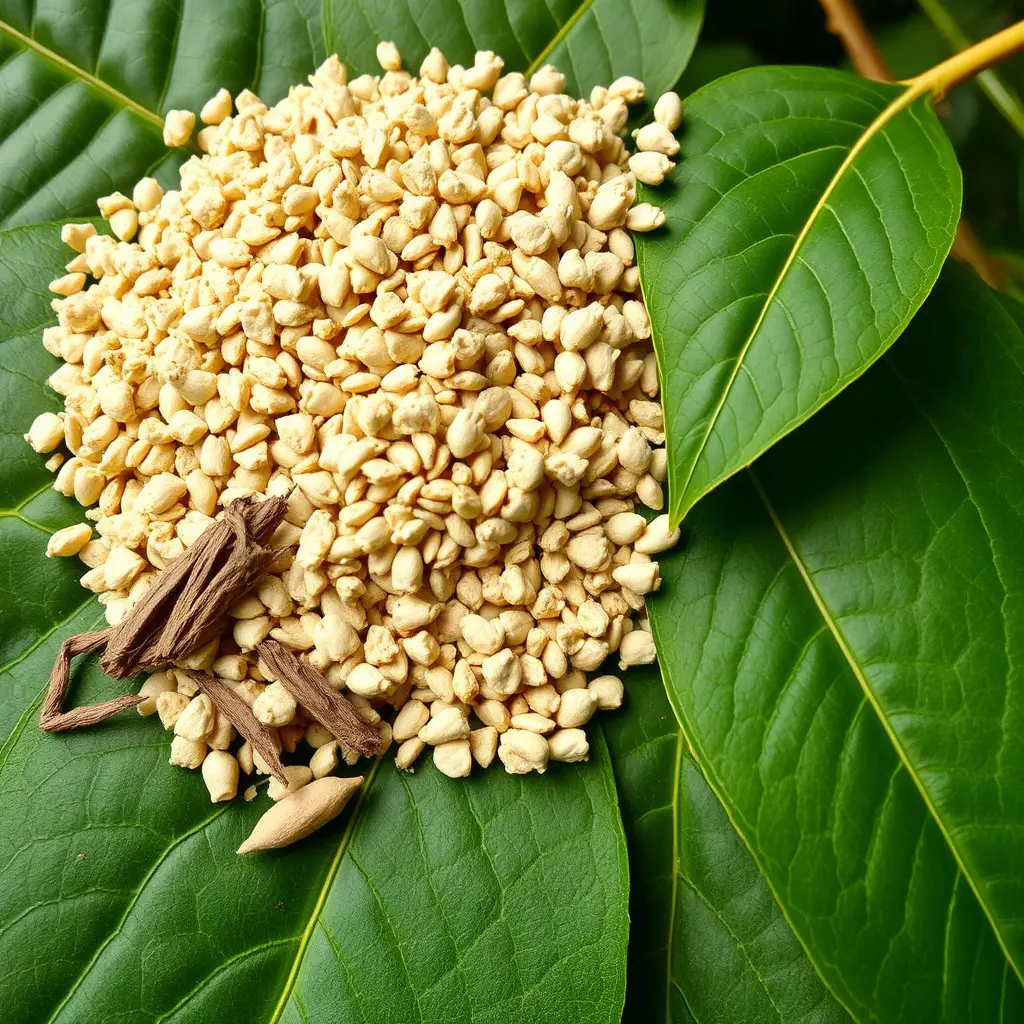This summary covers the integration of kratom and blue lotus into a training regimen for mental resilience and physical endurance. Kratom, a plant with psychoactive effects, has alkaloids like mitragynine that may enhance cognitive function and manage pain and fatigue, potentially benefiting athletes. However, its legal status varies by region, and it must be used cautiously due to potential opioid receptor interactions, side effects, and detection in drug tests. Blue lotus smoke, historically significant in Egyptian medicine, is noted for its cognitive enhancement and mood stabilization without impairing drug test results, making it a consideration for athletes under rigorous testing. Both substances require careful dosing, timing, and medical guidance to avoid legal issues and ensure safety. Users should be aware that blue lotus can affect drug test outcomes, similar to kratom, and should consider the implications of such use in competitive sports or employment settings. The section emphasizes the importance of a nuanced understanding of the legal and biological effects of these substances for anyone considering their inclusion in a training routine.
Embarking on a journey to enhance athletic performance often involves honing both mental resilience and physical endurance. This article explores the integration of Kratom into training regimens as a strategy for mental toughness, alongside the use of Blue Lotus for heightened focus and emotional stability. Additionally, it delves into the complexities of legal considerations surrounding Kratom, offering insights on navigating drug tests to maintain compliance. By understanding the nuances of these natural substances and their impact on performance, athletes can make informed decisions to support their training and competition efforts.
- Mastering Mental Resilience and Physical Endurance: Integrating Kratom into Your Training Regimen
- The Role of Blue Lotus in Enhancing Focus and Emotional Composure for Athletic Performance
- Navigating the Legalities: Understanding Drug Test Implications for Kratom Use and Strategies to Pass
Mastering Mental Resilience and Physical Endurance: Integrating Kratom into Your Training Regimen

Mastering mental resilience and physical endurance often requires a multifaceted approach, one that includes both psychological training and rigorous physical conditioning. Integrating kratom into your training regimen can be a strategic move for those seeking to enhance their performance and endurance. Kratom, a mitragynine-containing plant with historical roots in Southeast Asia, has garnered attention in various wellness circles for its potential cognitive and physical benefits. When considering the use of kratom, it’s crucial to approach it with caution and adhere to legal guidelines, as its status varies by region.
For athletes or individuals engaging in physically demanding activities, kratom may offer support in managing pain and fatigue, thereby allowing for longer and more intense training sessions. Its alkaloids are believed to interact with the opioid receptors in the brain, providing analgesic effects that can aid in recovery and resilience. However, it’s imperative to use kratom responsibly and to be aware of its potential side effects and interactions with other substances. Additionally, individuals who participate in drug testing programs should be cognizant that kratom may be detectable on such tests, potentially leading to consequences within the context of competitive sports or employment. Proper dosing and timing are key factors in safely incorporating kratom into a training regimen designed to build mental fortitude alongside physical prowess. Those interested in this approach should consult with healthcare professionals, especially given the nuanced legal standing of kratom and its effects on individual physiology. Blue lotus, often associated with kratom due to their shared alkaloids, also warrants attention as it can be a relevant factor in drug tests, further emphasizing the need for careful consideration and professional guidance.
The Role of Blue Lotus in Enhancing Focus and Emotional Composure for Athletic Performance

Blue Lotus, historically revered for its medicinal and psychoactive properties, has garnered attention in contemporary discussions on performance enhancement, particularly within the athletic sphere. This ancient herb, which was once a staple in Egyptian medicine, is known for its potential to elevate cognitive function and promote emotional balance. When ingested responsibly, Blue Lotus can facilitate a state of deep relaxation without overwhelming drowsiness, thereby enabling athletes to enter a flow state where focus is heightened and distractions are minimized. This heightened focus can be instrumental in executing complex maneuvers and maintaining strategic thought processes during high-stakes competitions.
Furthermore, Blue Lotus’s effect on emotional composure cannot be overstated. It has been observed that the herb can help regulate mood swings and reduce anxiety, which are common among athletes before or during events. The calming properties of Blue Lotus may assist in maintaining a clear mind and emotional stability, allowing for better decision-making under pressure. Additionally, its role in promoting relaxation without impairment is particularly advantageous for those who undergo drug testing regimens, as it does not typically register on standard drug screens. This aspect ensures that athletes can reap the benefits of Blue Lotus while remaining compliant with sporting regulations regarding performance-enhancing substances.
Navigating the Legalities: Understanding Drug Test Implications for Kratom Use and Strategies to Pass

navigating the complex legal landscape surrounding kratom is a critical step for individuals integrating it into their mental toughness training regimen, especially when considering the implications for drug tests. Kratom, a plant-based substance derived from the leaves of the Mitragyna speciosa tree, has gained attention for its potential benefits in enhancing focus and endurance, which are key components of mental toughness. However, kratom’s legal status varies across different jurisdictions, and its detection can lead to complications during standard drug screening processes. It’s imperative to be aware that traditional drug tests primarily screen for opioids, which kratom’s alkaloids closely resemble, potentially resulting in false positives.
To mitigate the risks associated with kratom use and its impact on drug test outcomes, strategic planning is essential. One approach is to carefully time kratom consumption, ensuring it’s out of one’s system before undergoing a drug test. Additionally, understanding the types of tests administered—whether they are urine-based or involve other methods like hair follicle testing—can guide individuals on how to best prepare. For those concerned about the possibility of a positive result, there are detoxification products available that claim to assist in cleansing the body of trace substances. Another strategy is to seek out specialized cleansing protocols designed to address the specific metabolites associated with kratom use. It’s also advisable to be transparent with employers or organizations about kratom usage if it’s a part of one’s training, as honesty can prevent misunderstandings and potential repercussions. For those curious about similar substances, it’s worth noting the blue lotus, another plant-based substance that has psychoactive properties and can also potentially affect drug test results. However, careful consideration should be given to both the legalities and the biological impact of using such substances in conjunction with kratom.
Incorporating kratom into a training regimen can significantly enhance mental resilience and physical endurance, as detailed in this article. The strategic use of blue lotus, another powerful natural compound, further amplifies focus and emotional control, offering athletes a dual-edged approach to elevate their performance. However, it is imperative for individuals to navigate the complex legal landscape surrounding kratom, which includes understanding its implications on drug tests. By employing smart strategies discussed herein, athletes can ensure compliance while optimizing their training. In conclusion, balancing the integration of these botanical substances with a disciplined approach to training and adherence to legal guidelines can be instrumental in achieving peak performance, providing a competitive edge without compromising one’s well-being or legal standing.






